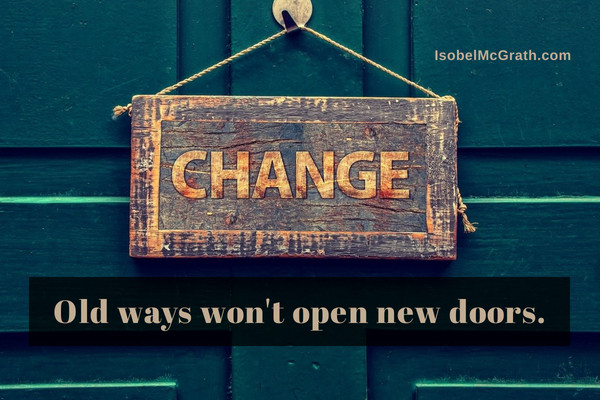New Year’s Resolutions Usually Fail – Here’s How to Make Real a Change
The New Year for some is the time to start afresh and renew a commitment to change by making some new resolutions. This is wonderful! However, for anyone who has ever bought new exercise equipment, joined the gym, started a diet, etc., you know that hope and the best intentions usually do not lead to permanent change.
Why Do New Year’s Resolutions Fail?
Our subconscious mind deciphers the difference between a TRUE commitment and a temporary change. Most anyone can manage to maintain a change in behavior using pure willpower for a short period of time. Often this is done from a mindset of deprivation and authoritative command. Though this may work short term it will not work long term.
What Works?
Understanding the process of change, and getting help when you need it can help you make long-lasting changes.
According to the transtheoretical model, the 6 stages of change are pre-contemplation, contemplation, preparation for action, action, maintenance, and possibly relapse.
The 6-Stage Process of Change
- Pre-Contemplation: This is the entry point of a person into the change process. The individual has not even considered the prospect of change and is unlikely to perceive a need for change.
- Contemplation: Once the person has some awareness of the problem, then the person enters the stage called Contemplation. It is an ambivalent state where the individual both wants and does not to change. I’ve seen people get stuck in this stage for months and even years.
- Preparation: The person is ready to change. The person has resolved the ambivalence enough to look at making a change.
- Action: The person engages in particular actions that intend to bring about change. There is a -strong commitment that is self-directed rather than imposed by others or the environment.
- Maintenance: The person identifies and implements strategies to maintain progress, and to reduce the likelihood of slips or full relapse into old behaviors. They have developed psychological tools to help deal with cravings.
- Relapse: The person has a slip, or returns to behavior at a level higher than acceptable. At times, the person might slip and not regard it as serious enough to be concerned, yet they may be at risk of making this a regular behavioral pattern, which will then lead to relapse.
I encourage you to contemplate and clarify where you are in regards to the behaviors you want to change and the 6-stage process of change.
Next, set a realistic action step you can easily commit to. Take action. Expect challenges and setbacks. Be compassionate, kind, and encouraging to yourself throughout this process.
The Process of Change is Not a Linear Progression!
Anyone who has read my book, Lose Weight: 21 Winning Tips – Begin a Healthy Mindset and Lifestyle Change! will understand how important it is to continually work on your mindset to achieve change. This is not a one-shot deal. The process of change though it may appear, is not a linear progression. Anyone who has ever made New Year’s resolutions knows this. This 6-stage process is best described as a spiral. Hence, it is important to accept this fact which is based on extensive research. Previously you may have thought the process of change was easy and there was something wrong with you because you could not achieve consistent permanent change. This is a lie.
Making and Breaking Your Resolutions?
There is absolutely nothing wrong with you! You didn’t know any better. You just don’t have the skills and tools quite yet that you need. If you find yourself continually slipping backward, it may be of benefit to seek professional help.
Allow Me to Help You
Throughout my 25 years in private practice, I have had the privilege of assisting thousands of people to make long-lasting behavioral changes. Each individual is unique in their journey – someone may need psychotherapy, coaching, and/or hypnosis to help them make a change. However, the process of change remains the same.
Want to make some big changes in your life? I am here for you. I offer a free 15-minute consultation to discuss how I can help you reach your goals. Please contact me today to make an appointment, and let’s get you started on making the positive changes your heart desires.
Wishing you all the best in 2022!

Isobel McGrath is a licensed International Mental Health Counselor, Life Coach, and Certified Hypnotherapist located in St. Augustine, FL.
Isobel provides EMDR and other therapy, counseling, life coaching, and hypnosis in person at her St. Augustine Beach office, and through Telehealth. She is dedicated to providing exceptional, collaborative care, and truly cares about her clients and their well-being.
For more information about St. Augustine Therapist Isobel McGrath, please visit: Mindful-Options.com, IsobelMcGrath.com, and 30SecondsOfCalm.com

